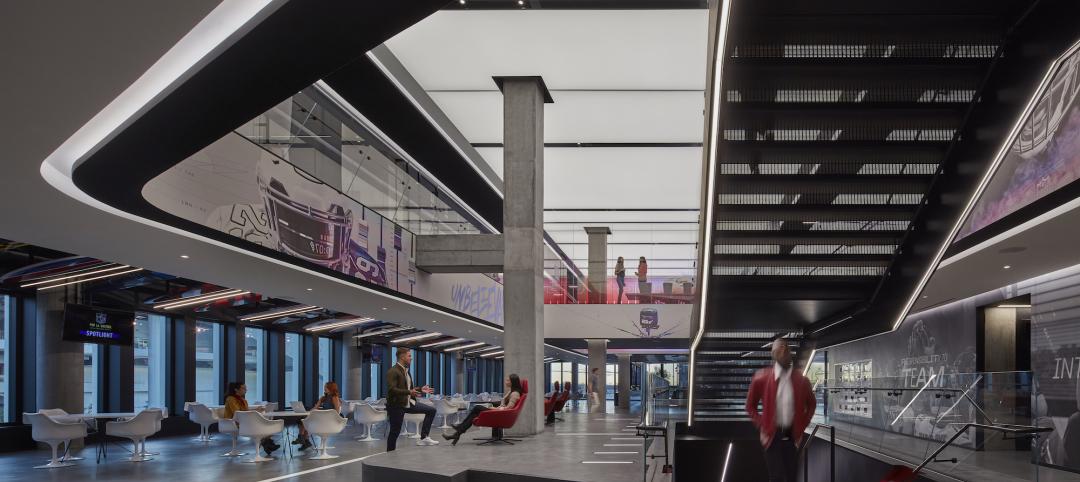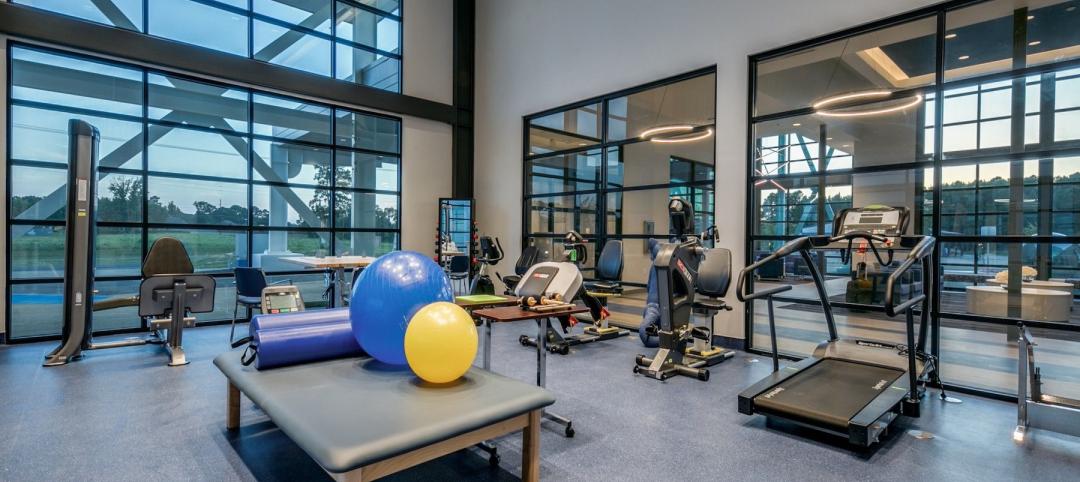It’s been a busy couple of months for the architecture and design firm NELSON. It was wrapping up its merger with Wakefield Beasley & Associates and WB Interiors, a deal that was announced last November. It recapitalized its business with two financial partners, H.I.G. Capital and Prudential. And today, NELSON announced that it had entered into a merger agreement with FRCH Design Worldwide, an architecture and design firm with three offices and 200-plus employees, which specializes in retail, hospitality, and mixed-use.
NELSON’s Chairman and CEO, John “Ozzie” Nelson Jr., and FRCH’s CEO, Jim Tippmann, will serve as Co-CEOs of the combined company, which now consists of 25 offices and more than 1,100 employees. FRCH Design Worldwide will be known as FRCH a NELSON company.
Tippmann tells BD+C that he and Nelson started talking “15-16 months ago” about the possibility of merging their two businesses. Such a deal made sense, explains Tippmann, because “we’re both operating in a dynamic, changing business environment.”
FRCH, with estimated revenue of $40 million, had concluded that it either had to acquire a company itself, or find a partner like NELSON that had the geographic reach FRCH needed in order to compete for business from larger clients, especially those propagating brands in multiple markets.
Just as the Wakefield Beasley deal got NELSON deeper into the mixed-use realm, merging with FRCH would bring into NELSON’s stable “a sizable hospitality business,” says Nelson. His company would also benefit from FRCH’s “big retail engine” in a sector where NELSON on its own has had difficulty gaining traction.

Jim Tippmann (left) and John “Ozzie” Nelson Jr., Co-CEOs of NELSON, will manage their company after the merger by region and practice sector. Image: NELSON
As Co-CEOs, Nelson and Tippmann have crafted a regionally defined operating model. Tippmann says he will be “the first point of contact” for NELSON’s business in the Northeast and Southeast, and Nelson will take the lead for its offices in the Midwest and West. Practice responsibilities will align with each of the merging company’s specialties: for example, Tippmann will oversee retail and “consumer interface” projects, whereas office, financial, and industrial projects will fall under Nelson’s domain.
The combined company’s holding company will continue to be based in Minnesota. But Cincinnati—FRCH’s headquarters city—is now NELSON’s biggest office. Atlanta is the company’s biggest market, and will be managed by two offices there. Over the coming months, the leadership of both organizations will further integrate their expanded service offering.
Nelson tells BD+C that he still sees his company as a “global boutique” with an office structure that Tippmann thinks is now “a contemporary model, where leaders can be anywhere in the U.S.” FRCH and NELSON both use video conferencing to connect their offices, which came in handy yesterday when the CEOs were announcing the merger to their employees via electronic town hall-like meetings. (Nelson notes that he spent 2½ hours with 250 people in his company’s Atlanta offices answering their questions. “You want to be as transparent as you can in those meetings,” he says.)
“I couldn’t have been more pleased with how this came together,” says Tippmann.
Nelson says his company has gotten to a size where “we will have an opportunity to grow organically and attract talent.”
However, having been involved in 40 mergers during his 30-year career with the company, Nelson says he’s still on the lookout for acquisition candidates in Southern California and Texas, and for firms that would strengthen NELSON’s competitive position in such sectors as industrial architecture and healthcare.
What he will avoid, though, is finalizing a merger just to get it done. “Culture trumps everything, and you don’t want to do a deal that leaves you with an operating nightmare.”
Related Stories
Education Facilities | Nov 30, 2022
10 ways to achieve therapeutic learning environments
Today’s school should be much more than a place to learn—it should be a nurturing setting that celebrates achievements and responds to the challenges of many different users.
75 Top Building Products | Nov 30, 2022
75 top building products for 2022
Each year, the Building Design+Construction editorial team evaluates the vast universe of new and updated products, materials, and systems for the U.S. building design and construction market. The best-of-the-best products make up our annual 75 Top Products report.
K-12 Schools | Nov 30, 2022
School districts are prioritizing federal funds for air filtration, HVAC upgrades
U.S. school districts are widely planning to use funds from last year’s American Rescue Plan (ARP) to upgrade or improve air filtration and heating/cooling systems, according to a report from the Center for Green Schools at the U.S. Green Building Council. The report, “School Facilities Funding in the Pandemic,” says air filtration and HVAC upgrades are the top facility improvement choice for the 5,004 school districts included in the analysis.
Architects | Nov 29, 2022
Three decades and counting, Tinkelman Architecture has helped reshape New York’s Hudson Valley
The full-service firm has designed more than 100 projects in this region, including several multifamily buildings currently in the works
Retail Centers | Nov 29, 2022
'Social' tenants play a vital role in the health of the retail center market
After a long Covid-induced period when the public avoided large gatherings, owners of malls and retail lifestyle centers are increasingly focused on attracting tenants that provide opportunities for socialization. Pent-up demand for experiences involving gatherings of people is fueling renovations and redesigns of large retail developments.
Giants 400 | Nov 28, 2022
Top 200 Office Sector Architecture and AE Firms for 2022
Gensler, Perkins and Will, Stantec, and HOK top the ranking of the nation's largest office sector architecture and architecture/engineering (AE) firms for 2022, as reported in Building Design+Construction's 2022 Giants 400 Report.
Legislation | Nov 23, 2022
7 ways the Inflation Reduction Act will impact the building sector
HOK’s Anica Landreneau and Stephanie Miller and Smart Surfaces Coalition’s Greg Kats reveal multiple ways the IRA will benefit the built environment.
Multifamily Housing | Nov 22, 2022
10 compelling multifamily developments debut in 2022
A smart home tech-focused apartment complex in North Phoenix, Ariz., and a factory conversion to lofts in St. Louis highlight the notable multifamily developments to debut recently.
Digital Twin | Nov 21, 2022
An inside look at the airport industry's plan to develop a digital twin guidebook
Zoë Fisher, AIA explores how design strategies are changing the way we deliver and design projects in the post-pandemic world.
Healthcare Facilities | Nov 17, 2022
Repetitive, hotel-like design gives wings to rehab hospital chain’s rapid growth
The prototype design for Everest Rehabilitation Hospitals had to be universal enough so it could be replicated to accommodate Everest’s expansion strategy.

















